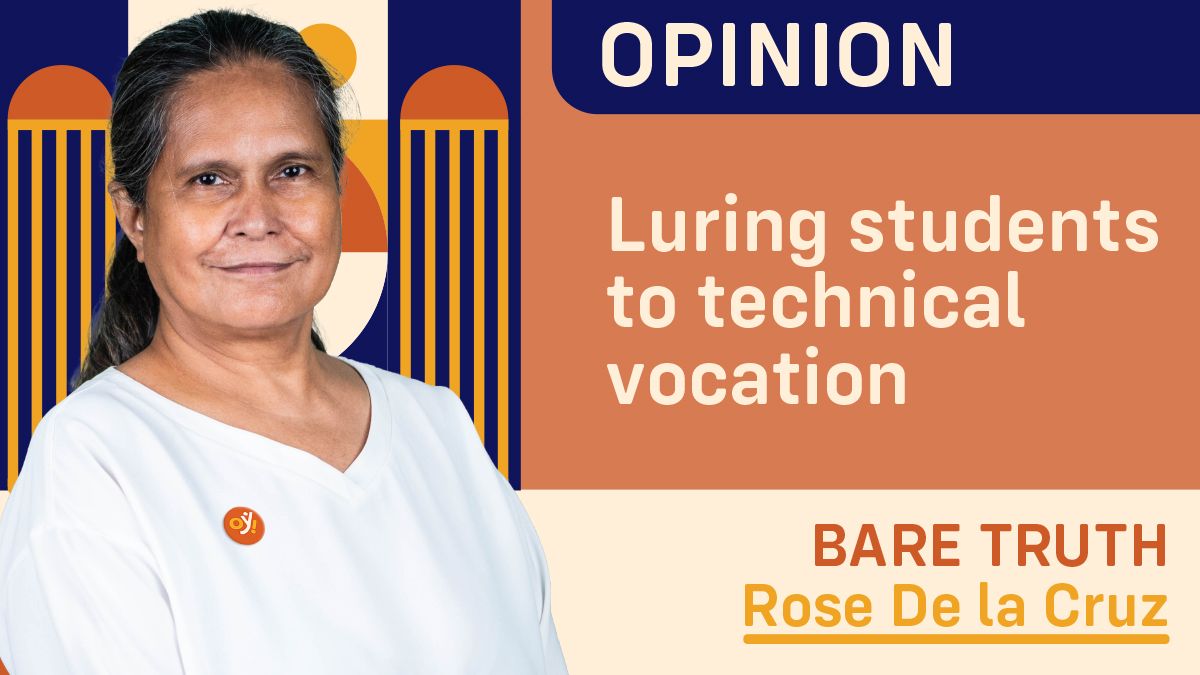Everyone knows how difficult it is for college graduates to land corporate jobs because of either a mismatch in their acquired knowledge and the skills required by the companies or because of the preference of certain companies for only a few graduates of their select universities to choose from.
Either way, the fresh grad enters into a job he/she is hardly fit for in terms of skills and pay but would make do with this circumstance rather than be idle for long. Companies shun those who have been unemployed for sometime– say a year or two--because perhaps the applicant is picky or because he/she lacks interest in getting employed.
Precisely because of the disconnect between the labor market and the graduates produced yearly by schools that unemployment figures rise every year. The fresh grads must compete with the currently unemployed (job hunters), the underemployed (those looking for more work for more pay) and those with little skills development during the K to 12 program particularly those that took up the vocational and technical strands.
In a paper authored by Aniceto Orbeta Jr. and John Paul Corpus published last March 11, 2024 entitled “Issues in Philippine TVET: Responsiveness to Industry Demand and Barriers to Access among Disadvantaged Youth” for the Philippine Institute for Development Studies (PIDS), it was pointed out that technical and vocational education and training plays a key role in producing a skilled labor force and providing a pathway for youth to gain productive employment.”
The study assessed TVET's responsiveness, or which I prefer to call relevance, to industry needs using qualitative interviews of enterprise-based training providers from the construction, manufacturing, and tourism sectors.
Among the issues raised include (1) difficulties in attracting students to participate in construction training programs due to the sector’s poor image; (2) gaps in training quality, especially in public training institutions, owing to outdated facilities and trainers lacking up-to-date industry knowhow; and (3) underdeveloped soft skills among young employees, the study pointed out.
It also examined the barriers that keep youth not in employment, education, or training (NEET) from participating in vocational education.
Data was gathered through a rapid online survey of young trainees or training applicants who were or had been NEET at the time of the survey.
Many respondents self-identified as poor and cited the lack of financial resources for education as the main hindrance to pursuing TVET, followed by the lack of information on training programs.
It is important to expand and attract more TVET learners who will provide the talents needed by our growing technological industries and even manufacturing and services.
Recommendation
The study recommends using information campaigns and scholarships to attract learners to train for in-demand occupations, strengthening soft skills instruction, incentivizing industry practitioners to join the TVET sector as trainees, and promoting enterprise-based training programs.
Enabling greater training participation among NEET calls for financial assistance programs with adequate allowances and information dissemination initiatives about training and job opportunities.
My take
There are lots of government and private sector jobs available but the skills required do not match those in the jobs market.
With technology adding to job opportunities that applicants can choose from, there is simply no reason why fresh grads or even TVET graduates can't land a job. But if they are choosy, then that is another point.
Four or five decades ago, when I first applied for a job coming from the state university, I was willing to embrace any item that entailed research, writing or even broadcast (which was my actual course).
But back in late 1970s, there were just a handful of radio and television companies to choose from and they were all emasculated by Martial Law, which made it unsustainable for me. And the pay rates were exorbitantly low.
Luckily I landed a job as a researcher for a company that did policy reviews and I got honed in it. It also handled a sequestered media outfit, for which I stayed on until I moved to a major mainstream paper.
In short, there are two sides to unemployment: the mismatch of skills with those required by the companies or an applicant is too picky for his own good.
#WeTakeAStand #OpinYon #OpinYonColumn #ColumnbyRosedelaCruz #BareTruth

